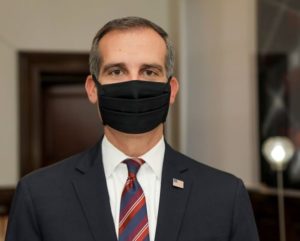
A large homeless encampment has been allowed to grow in Venice.
A preliminary injunction filed on Tuesday in U.S. District Court by Judge David Carter was damning to L.A. City and County.
“This Court cannot idly bear witness to preventable deaths. The City’s inaction has had a deep, disparate, and deadly impact on the citizens of Los Angeles,” the judge wrote in the Case of LA Alliance for Human Rights versus the City of Los Angeles.
“Los Angeles has lost its parks, beaches, schools, sidewalks, and highway systems due to the inaction of City and County officials who have left our homeless citizens with no other place to turn.”
The court document requires the City and County of Los Angeles to take immediate steps toward alleviating the ongoing homelessness crisis.
Judge Carter said the efforts of the two governmental bodies have been inadequate and that “in the year since this litigation began, there has been a 32 percent increase in the number of homeless deaths compared to the previous year.
 “There were 713 homeless people who died between March and July 2020 alone – more than double the number of units of housing built under Proposition HHH in the four years since it was passed. Because the City and County have repeatedly failed to do so, the Court now finds it necessary, in the proper exercise of its equitable powers, to craft an immediate response to this unconscionable humanitarian crisis.”
“There were 713 homeless people who died between March and July 2020 alone – more than double the number of units of housing built under Proposition HHH in the four years since it was passed. Because the City and County have repeatedly failed to do so, the Court now finds it necessary, in the proper exercise of its equitable powers, to craft an immediate response to this unconscionable humanitarian crisis.”
Carter is ordering accountability by:
1) Placing in escrow the $1 billion that Mayor Eric Garcetti announced would be used for the homeless, with funding streams accounted for and reported to the Court within seven days.
2) Conducting an audit, within 90 days, of all “homeless” funds, including Proposition HHH funds, MHSA funds, Measure H funds, and emergency relief from the state and federal government, including the American Rescue Plan and the Cares Act.
3) Conducting an investigation and preparing a report on developers that are currently receiving HHH funds, within 90 days.
4) Require the County to conduct an audit of any funds committed to mental health (MH) and substance use disorder (SUD) treatment, within 30 days.
The following action is requested in the injunction:
1) Within 30 days, City Controller Ron Galperin shall give a report on all land potentially available within each LA City district for housing and sheltering the homeless.
2) The Court ORDERS the cessation of sales, transfers by lease or covenant, of the over 14,000 City properties pending the report by the Controller.
3) Within 30 days, the Los Angeles City Council Homelessness and Poverty Committee shall report back to the Court with specific actions to address 1) structural barriers (including but not limited to redlining, highway construction, eminent domain, and health exposure) that cause a disproportionate number of people of color to experience homelessness or housing insecurity; 2) solutions to the problem of extremely low income individuals being foreclosed from the affordable housing market in favor of higher-income individuals; and 3) the possibility of rezoning to accommodate more R3 (multi-family) zoning.

Mayor Eric Garcetti
4) Mayor Garcetti and County Board Chair Supervisor Hilda Solis must submit to the Court, by April 27, why they have not issued an emergency declaration regarding the homeless crisis.
5) Within 30 days, the City and County are required to prepare a report on the status of Projects Homekey and Roomkey.
6) Within 30 days, the County is to report on establishing a 1,508 sub-acute bed location and an additional 1,418 sub-acute beds to accommodate those with substance abuse disorders, who should be diverted from jails.
The injunction states that “Despite frequent acknowledgments of the emergency nature of homelessness in LA, City and County efforts to address the problem continue to be mired in corruption and plagued by a lack of transparency.
“Recent investigations into City-funded housing projects for the homeless demonstrate that a lack of government oversight has allowed the proliferation of corruption.”
The document then listed two instances that “developers of taxpayer-funded affordable housing projects have purchased properties before turning around and reselling those properties to themselves at higher prices in order to artificially inflate their project budgets and, in turn, the amount of public money that they receive.”
A renovated motel in the Westlake neighborhood was given as an example with the developers increasing the project’s budget by $8 million through the process of reselling.
According to reporting by KCRW, “Most of the more than $30 million pumped into the renovation of this rundown motel has gone to its former owners, who, right before the sale, were sued by public interest attorneys for illegally evicting tenants.”
A second case near Koreatown was also cited. “A similar reselling process was used by a different developer to artificially inflate the budget by $6 million.”
The injunction stated: “These cases, of which there are almost certainly more to be discovered, indicate that the city has turned a blind eye to corruption as money is being siphoned off from funds that taxpayers voted to allocate to the homeless population.”
Why is the judge asking that Prop. HHH be audited?
Simply, it’s a lack of housing being built. The injunction notes that four years ago, voters passed the $1.2 billion bond to fund housing projects (in November 2016).
“After three years of missed deadlines, the first HHH project, providing just 62 housing units, opened in January 2020.” Then, Garcetti promised an opening every three weeks. It never happened. More than a year later, just seven projects containing 489 total units had been completed.
“Where has this money gone?” asked Anna Scott of National Public Radio member station KCRW. “The initial public campaign for Proposition HHH planned for 10,000 housing units to be completed in 10 years . . . At the current rate, it will take nearly 30 years to build enough housing for over 66,000 people currently experiencing homelessness. Moreover, while the average cost of a custom home in L.A. starts at $350,000, more than 28 percent of Proposition HHH units in construction exceed $600,000 per unit.”
According to the injunction, Garcetti, instead of pressing for accountability, in April 2020, ordered “all benchmarks and deadlines pertaining to current HHH projects [to be] indefinitely suspended.”
Carter notes the following health and safety impacts of homelessness:

This is the fire started by the homeless on Venice under the 405 Freeway. Transients started a fire on an encampment along Penmar golf course. Some of those homeless took housing, others did not.
Fires:
“Inertia has created a public safety crisis that touches the lives of every citizen of Los Angeles while the government remains indifferent amidst rising chaos,” the injunction states and notes that the Los Angeles Fire Department shows thousands more fires in 2020 than 2019, including more arsons and fires linked to homelessness.
“In 2020, fires related to homelessness increased by 82% compared to 2019. Particularly disturbing are records related to deliberately set fires affecting homeless individuals—which increased by 90% in 2020.”
Increased Risk of Deaths:
According to L.A. County, transportation-related injuries are the third most common cause of death among unhoused Angelenos. In Los Angeles, a homeless individual is 11 times more likely to die from being struck by a vehicle or train than a housed individual. Many others die each year after falling from overpasses.
Mental Health:
Unintentional drug or alcohol overdose is the second leading cause of death among unhoused Angelenos. According to the National Institute of Mental Health, approximately half of individuals who experience a substance use disorder during their lives also experience a co-occurring mental disorder and vice versa.
On October 29, 2019, a Department of Mental Health report noted that “the availability of services does not seem to match the level of need in the service areas. There are services, but to access care you have to ‘win the lottery,’ have a chronic level of need that requires hospitalization or become incarcerated. Mild cases become severe while people are trying to connect to care.”
The injunction stated: “This Court cannot idly bear witness to preventable deaths. . . . Hospitals discharge too quickly in a triage mode, [which is] “one of the chief contributors to repeat hospitalizations and insufficient recovery.”

A local homeless woman sleeps by the library and has resisted all help offered by the Pacific Palisades Task Force on Homelessness. Mental health help is needed.
Judge Carter appointed a special monitor, Michele Martinez (paid for by the City and County) to assist with the implementation of the order.
David Graham-Caso, spokesperson for Councilman Mike Bonin, was contacted for a statement about the injunction. He had not responded by post time. If CTN receives a response, it will be included.
Resident David Peterson, who sits on several local boards, including the Palisades Business Improvement District and the Pacific Palisades Task Force on Homelessness, told CTN and the Community Council: “For all who care about the well-being of the homeless and our wonderful city, we need to thank Judge Carter and rally in opposition to any attempt by the City or the County to appeal his injunction.”

How do we help, and thank, and rally? Maybe you can do a follow-up with material ideas that have been proposed? Thanks, Sue, for every edition of CTN; you are not only our news, but our conscience.
Sue,
This article reached the NY Post and I suggested the writer reach out to you to get more information as he has not gotten the full story
https://nypost.com/2021/05/10/californias-venice-boardwalk-is-now-dangerous-homeless-encampment/?contact-form-id=widget-text-4&contact-form-sent=18200991&contact-form-hash=c4b73003bd4b26a16a066823ea46f34274e30536&_wpnonce=171c4bb685#contact-form-widget-text-4